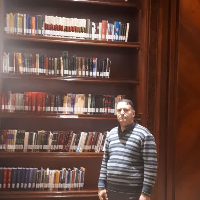The Effect of Local Water Governance on the use of Virtual Water: A Case Study of Isfahan Province
Identify the influential and key variables of local water governance regarding virtual water use in Isfahan Province.
The methodology governing the research is descriptive-analytical. The data needed for the research has been collected by library and field method (interview and questionnaire) and analyzed using the DEMATEL technique, FCOPRAS and FSOARA combined model and Vensim software.
The research results show the variables of the lack of proper water governance structure in Isfahan Province, neglecting the necessity of spatial planning, the development of water-bearing industries in Isfahan Province, etc. The partial balance from the point of view of water governance in Isfahan Province B, the existence of water mafia in Isfahan Province, unsustainable development, economic threats caused by the lack of agricultural products, insecurity of water resources in Isfahan Province, etc., are shown as disabled.
Based on the findings of the research, it can be stated that the variables of the development of water-bearing industries in Isfahan province, climate changes and rainfall patterns, lack of proper governance structure in Isfahan Province, social conflicts around the axis of water, unsustainable development and non-integrated allocation of water resources in Isfahan Province, inattention to necessity of land preparation and lack of policy reform and lobbying in the local water governance of Isfahan province, etc., were identified as key variables from the point of view of the research experts.
This article explores the overlooked interactions between water governance and political, economic, social, and geographical approaches in water resources management. It innovatively analyzes how virtual water interacts with local water governance to address the water crisis in Isfahan province, using the DEMATEL technique, the FCOPRAS and FSOARA combined model, and Vensim software.
-
Examining China’s Possible Superpower Against the United States with emphasis on examining China's Biosphere in Access to International Waters
Babak Shafiee *, Yadullah Karimipour, Destanaei, Kosar Karimipour
Quarterly of Geography (Regional Planing), -
Scenarios for the Application of Virtual Water in the Local Governance of Isfahan Province with a Future Research Approach
*, Mohammad Yosefi Shatori, Arash Ghorbani Sepehr
Journal of Water and Sustainable Development,



